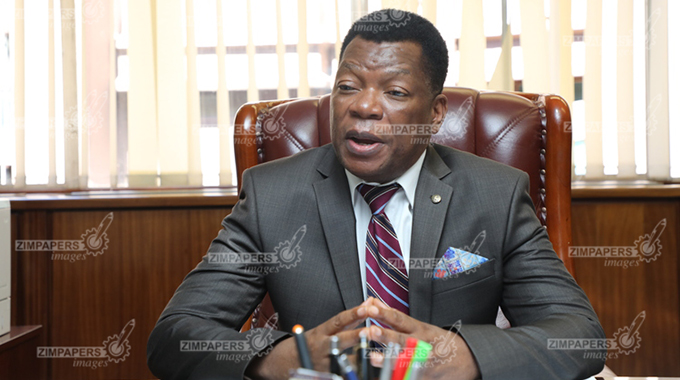Editorial Comment: New judges will improve quality of justice

President Mnangagwa recently appointed five new judges to beef up the High Court bench, a development that will equip the court to effectively deal with the ballooning litigation. Justices Evangelista Kabasa, Christopher Dube-Banda, Siyabona Paul Musithu, Sunsley Zisengwe and Webster Chinamora took oaths of office before Chief Justice Luke Malaba on Wednesday.
They joined 37 others, bringing to 42 the total number of judges on the High Court bench.
Although judges at the High Court got a pat on the back for a job well done during the opening of the 2019 legal year in January, they had been operating under intense pressure due to staff shortage.
The appointment of the new judges this week was hailed as a welcome development by the Judiciary, legal profession and other stakeholders.
It is set to ease the workload of the court.
The appointment of the five comes at a time when the Judiciary has embraced Government’s initiative and taking various steps to aid in the fight against graft, which has stifled economic growth.
Preparations to set up the Commercial Court, a division of the High Court, are now at an advanced stage and it needs more judges.
The idea dovetails with Government’s thrust to promote ease of doing business in Zimbabwe, with commercial disputes being expeditiously and effectively resolved by a specialised court.
More judges help to fully equip the new court with a view to making Zimbabwe a safe investment destination.
In the same vein, JSC has also opened Magistrates’ Commercial Courts and Anti-Corruption Courts in all the country’s 10 provinces, with a view to ensure effective resolution of commercial disputes and quality prosecution of the corrupt.
The High Court is also on a decentralisation drive, which has seen two new permanent High Court stations being established in Masvingo and Mutare between 2016 and 2018.
Decentralisation of the court brings justice to the people in line with the judiciary’s dream to make justice accessible to all.
Such a noble exercise also requires more judges.
The Judicial Service Commission (JSC) is working on setting up a new High Court station in Gweru in its quest to be represented in all the country’s 10 provinces.
Although the Executive should be applauded for the appointment of the five, the court requires more judges in order to function more effectively.
Efforts by the Chief Justice to mitigate the shortage, saw the appointment of three acting judges of the High Court who were deployed to the Fiscal Court. The High Court has a number of specialised divisions, a strategy employed to enhance the quality of justice.
The divisions need to be adequately staffed.
The Fiscal Court, Family Law Court, Criminal and Civil divisions, Electoral Court, Intellectual Property Tribunal and the Legal Practitioners’ Disciplinary Tribunal are all divisions of the High Court that also need to be adequately staffed.
Chief Justice Malaba is on record stating that the High Court was experiencing increased litigation, an indication that people have increased confidence with the courts.
Recently, two judges — Justices Nicholas Mathonsi and Charles Hungwe — were elevated to the Supreme Court after being successful in fully contested public interviews. The promotion of the pair also created a vacuum at the High Court, which also needs to be filled by more judges.
The recent expansion of the High Court in Bulawayo that resulted in the construction of three additional courtrooms also calls for the appointment of more judges to the bench.
JSC is on record advocating the deployment of more judges at Bulawayo, which is the second busiest High Court station after Harare.











Comments